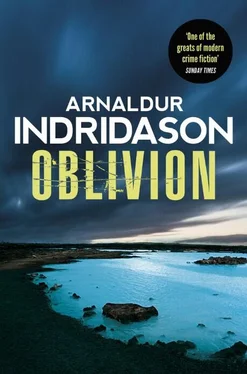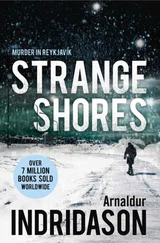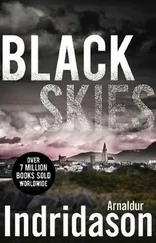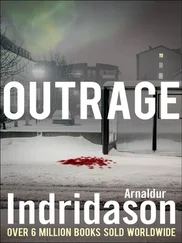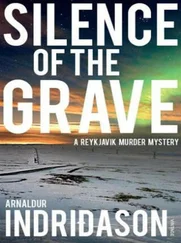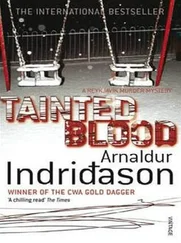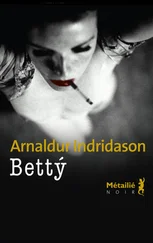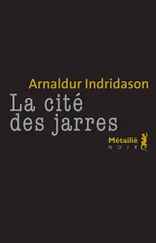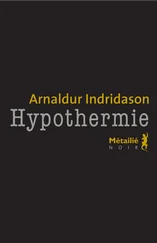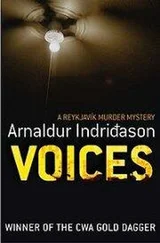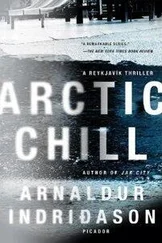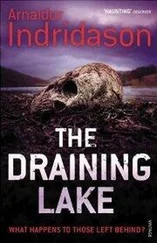The Corolla was not much to look at, especially with all the air let out of the tyres. One wing was crumpled from a collision and there was an old dent in the passenger door. The back seat was littered with rubbish, newspapers, fast-food containers and empty beer and soft-drink cans which could only be obtained from the base. The boot contained two Icelandic wool blankets, a half-empty gallon bottle of American vodka and three packets of cigarettes. The spare tyre was lying untouched in its place. The registration papers were in the glove compartment. It appeared the car hadn’t been for an MOT for two years.
It was impossible to guess how long or indeed why it had been parked there. The simplest explanation was that Kristvin had stopped off for a snack since many of the barracks had vending machines that sold items like cigarettes, canned drinks and chocolate. While he was inside, someone must have slashed his tyres and left him stranded. An alternative, less straightforward, explanation was that Kristvin had been visiting someone in this or a neighbouring barracks, in other words that he had an acquaintance here or had some business with a resident that involved not chocolate but vodka and cannabis.
After leaving the prison, Marion and Erlendur had headed straight out to Keflavík, discussing the various scenarios as they drove and complaining about how utterly fed up they were of interrogating the brothers.
‘I suppose it’s hardly surprising the car should turn up here,’ said Erlendur, surveying the barracks. ‘It’s where Kristvin worked, after all.’
Marion walked round the car and bent down to examine the gash in one of the front tyres. It was two centimetres long, made by the blade of a knife, possibly a penknife.
‘It all fits, more or less,’ said Marion. ‘Why do you think his tyres were slashed?’
‘I suppose there’s a faint chance someone did it for a laugh, but... given what we know happened to Kristvin, maybe it’s a bit more complicated than that. I think it’s much more likely he landed in some kind of trouble here.’
‘Which led to him turning up in the lagoon?’ said Marion, poking a finger into the slit in the rubber.
‘Why didn’t he fetch help?’ asked Erlendur. ‘Change the tyres? Drive away?’
‘He needed more than one tyre. He must have been planning to come back later and sort it out.’
‘Or he couldn’t do anything about it just then.’
‘Why not?’
‘Because he was in a hurry and didn’t have time,’ said Erlendur.
‘Why was he in a hurry?’
‘Because... he needed to get away? Somebody was after him?’
‘Because somebody was after him,’ repeated Marion. ‘He had to make an urgent getaway and didn’t have time to worry about the car.’
‘Who let down the tyres? The man or men who were after him?’
Marion straightened up: ‘... who thought Kristvin might escape by car and wanted to prevent him.’
‘So Kristvin made a run for it? Are you implying he was killed here on the base?’ asked Erlendur.
‘I’m beginning to wonder. Though perhaps the tyres were slashed because the car was left here unattended and some vandals just happened to be passing. We can’t rule that out.’
‘But you don’t think it’s likely?’
‘No,’ said Marion, ‘I don’t. Kristvin worked on the base. And was involved in shady business here that could have got him into hot water. Doesn’t it all point to the same thing?’
‘Maybe,’ said Erlendur.
‘You’re not convinced.’
‘We’re not just talking about Icelanders any more, are we?’ said Erlendur. ‘His assailants, I mean?’
‘No, I think that’s clear.’
The military police stood a little way off, watching Marion and Erlendur examine the car and listening to their conversation without understanding a word. Forensics had arrived to collect the Corolla for inspection at their workshop in Kópavogur and were waiting for a lorry. Marion strolled over to the two American policemen, exchanged introductions and explained that members of the Icelandic CID would need to interview the residents of the neighbouring barracks.
‘Is that strictly necessary?’ asked one of the men.
‘The owner of this car was murdered,’ Marion informed him in competent English. ‘I thought you were aware of that. We need to find out why his car’s here, what business he had visiting the barracks.’
‘Was he murdered in one of the barracks?’
‘We don’t know.’
‘Was he murdered on the base?’
From the stripes on his shoulder the policeman appeared to be an officer, maybe a sergeant. He was young, in his twenties, and spoke with a noticeable Southern drawl. His companion, who was around the same age, contributed nothing to the conversation.
‘We don’t know,’ repeated Marion. ‘That’s why we need to—’
‘Why don’t you find out first?’ interrupted the young sergeant, making no effort to appear accommodating. ‘I don’t believe the folks round here would care to be questioned by you people.’
His arrogance, the way he said ‘you people’ and cut Marion off short, angered Erlendur and made him want to step in and give the guy a piece of his mind. But he bit his lip.
‘Maybe it would be better if we spoke to your superior officer,’ said Marion.
‘I doubt that would make any difference,’ said the young man. He adjusted his cap which had tipped forward on his brow.
‘All the same,’ said Marion and turned to Erlendur. ‘We need to find someone with a grain of sense around here.’
The Americans conferred, then announced they would contact headquarters. The one who spoke for both repeated, defiantly, that the Icelandic police shouldn’t assume they would be granted permission to interrogate American nationals on US territory, unless the circumstances were exceptional. On the other hand, he made no objection to the Corolla being removed from the scene. The lorry, which had arrived in the interim, reversed up to the car and the driver attached a hook under the bumper, then winched the car into the trailer and secured it. Then he got behind the wheel again and the lorry moved off, under police escort.
While they were awaiting a green light from the base authorities for the Icelandic police to question Defense Force personnel, Marion and Erlendur drove over to the Icelandair premises where Kristvin had worked as a mechanic. These were located inside the military zone, like everything relating to international civil aviation in Iceland. Plans had long been afoot to move the international airport, by constructing a smart new passenger terminal outside the perimeter to the west of the base, but little progress had been made so far. The old terminal building was no longer fit for purpose and it was hardly appropriate that every time Icelanders wanted to travel abroad they had to pass through a US military checkpoint. It was yet another bone of contention in the bitter controversy over the American presence in the country that had been raging ever since the Defence Agreement was signed with the United States after the Second World War. Opposition came principally from those on the Left, who wanted not only to throw out the Defense Force but for Iceland to leave NATO as well and declare itself neutral. Support for the military presence tended to come from the Right, who believed that cooperation on defence was essential in these uncertain times and that neutrality in the war between East and West was unthinkable. Others were motivated by profit. They wanted to charge the Americans for the lease of the site on Midnesheidi, but this was countered with the argument that the army was already pumping a vast amount of cash into the Icelandic economy in the form of contracts. Then there were those who took a more moderate line, not necessarily in favour of the army’s presence but regarding it as a necessary evil in light of the Cold War, and feeling that, after the horrors of the last war, the Icelanders ought to do their bit for the Western defensive alliance by remaining a member of NATO. If, at some point in the future, the situation changed, the army would no longer be required. But that time did not appear to be close.
Читать дальше
